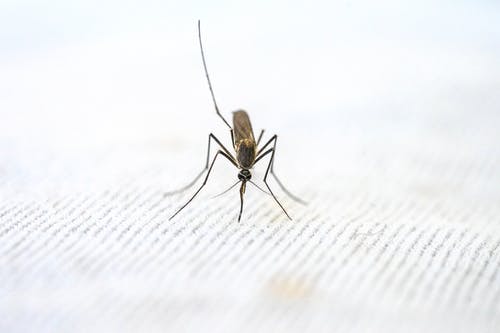Latest News
What Is Malaria?

Malaria is a blood disease caused by a parasite known as Plasmodium. In most cases, the parasite gets into the human body by the bite of an infected female mosquito. The mosquito responsible for transmitting malaria is known as “Anopheles”.
Once a mosquito bites an infected person, it can pass the malaria-causing parasite to a healthy person by biting them. The parasite then travels to your liver and stays there until it is strong enough to attack the red blood cells in your blood. After the initial attack, the parasite multiplies quickly in your blood which eventually results in the bursting of cells.
What Are the Symptoms of Malaria?
Normally malaria symptoms start occuring a few weeks after the bite of an infected mosquitoe. Whereas in some cases malaria parasites stay hidden without causing any symptoms in the patient’s body for up to a year.
Some common symptoms caused by malaria are:
- Shivering and chills
- High grade fever
- Headache
- Diarrhoea
- Fatigue
- Shortness of breath
- Irregular heartbeat
- Cough
- Vomiting
- Joint pain
- Discomfort
- Stomach pain
In some more severe cases, the patient might experience signs of anaemia, bleeding, organ dysfunction, and impaired consciousness.
Other than these symptoms, some malaria patients experience malaria “attack” cycle. During which, seizures usually start with chills and are followed by a high fever and sweating. At the end of this attack, the patient’s body returns to normal body temperature. If you have any of the above-mentioned symptoms consult a General Physician in Lahore immediately and follow their guide.
What Causes Malaria?
Four parasites are mainly responsible for causing malaria. These parasites are named as: Plasmodium vivax, P. malariae, P. ovale, and P. falciparum.
People can get these parasites in their blood through:
- Organ transplant
- Bite of an already infected mosquito
- Infected needles used for drugs
- From mother to an unborn child (congenital malaria)
- During blood transfusion
Can Malaria Cause Any Complications?
A person infected with malaria may go through some of these complications while they are recovering:
- Seizures: When infected blood cells block small blood vessels in the brain they may cause swelling in the brain and as a result malaria patients experience coma and seizures.
- Shortness of breath: Fluid collection in the lungs can cause breathing difficulty.
- Organ failure: Malaria can damage the kidneys and liver or rupture the spleen.
- Complications causer by medication: Low blood sugar levels are caused by medications prescribed to treat malaria.
How Do Doctors Diagnose Malaria?
Doctors usually diagnose malaria by analyzing your symptoms and taking in your medical and travel history. After their initial diagnosis if they suspect that you may have malaria they will order these diagnostic tests:
- Blood Tests: For detecting parasites in your blood.
- Antigen Detection Kits: These kits help detect antigens derived from malaria parasites.
- PCR Test: This test is done when the doctor wants to know the condition of the infection. It is usually ordered when a patient needs immediate assistance.
What Are the Treatment Options for Malaria?
The main goal of treatments is to remove the malaria-causing parasite from the blood. Depending on the condition of the patient, doctors may suggest the following treatments:
- Antibiotics: A course of antibiotics is prescribed in most cases to eliminate parasites and prevent relapse of the disease in the future.
- Hospital Treatment: If the patient’s condition is severe, they will have to get hospitalised to get treated for malaria.
- Surgical Treatment: In some rare cases of malaria, patients suffer from brain or organ damage. In this situation, doctors may suggest surgery.
How To Prevent Malaria?
If you live or travel in a subtropical or tropical area, you must take preventative measures to avoid mosquito bites. Following are some things that you can do to avoid mosquitoes:
- Covering Up Your Skin: Wear long-sleeved shirts to cover your hands entirely. One must also wear long socks to keep their legs and feet covered.
- Applying Insect Repellent: Use an insect repellent on bare skin. Insect repellents are highly effective against malaria or dengue.
- Sleep Under Nets: Avoid sleeping in the open area or use a net if you must sleep in the open area.
In 2019, 229 million cases of malaria were reported worldwide. Hence, it is a commonly occurring life-threatening disease in which children and pregnant women suffer the most.
If you or someone around you is suffering from malaria it is advisable to consult a General Physician in Islamabad before symptoms start getting worse.
Umar Nisar was born and raised in the busy city of Abbottabad. As a journalist, Umar Nisar has contributed to many online publications including PAK Today and the Huffing Post. In regards to academics, Umar Nisar earned a degree in business from the Abbottabad UST, Havelian. Umar Nisar follows the money and covers all aspects of emerging tech here at The Hear Up.
Thanks










